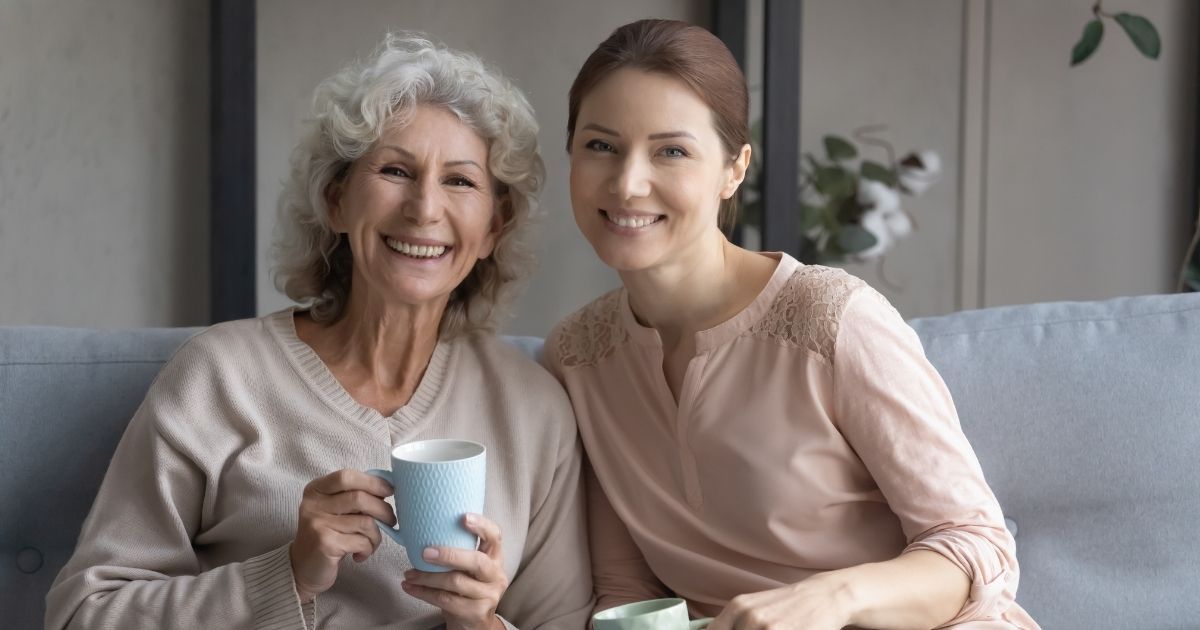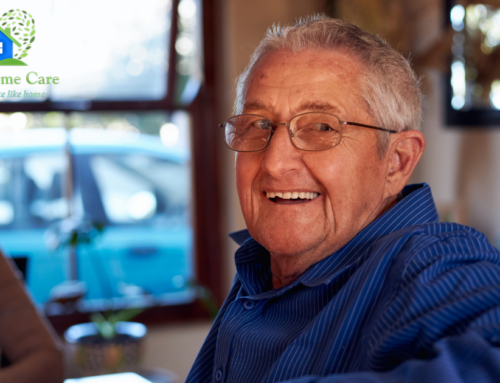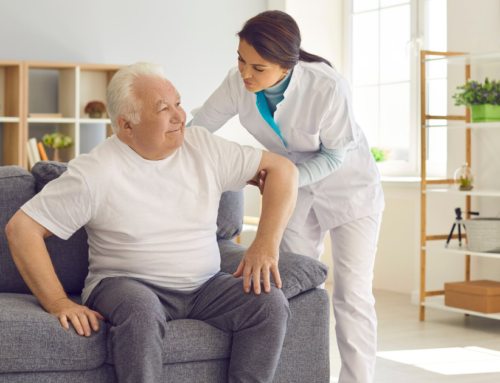Because of her limited mobility, you’ve been helping your elderly mom with some of her daily activities ever since your dad passed away months ago. She wants to continue aging independently in place, and you’ve been trying to honor her wishes by upgrading her home’s safety features, providing transportation, and assisting with housework. But lately, you’ve noticed something isn’t quite right with mom, notably that she seems lonely and depressed. And, that’s got you down too because you feel like you’re not adequately meeting her caregiving needs. The truth is there are many non-physical caregiving ways to help improve a senior loved one’s mental wellbeing. Here are a few of the better ones to try.
Emotional Support
Millions of seniors live alone, but that doesn’t mean they have to feel lonely. If mom’s physical health is pretty good overall, it’s time to assess her emotional state, and determine how you can offer support. Studies have found that an enhanced emotional state not only makes seniors happier, but also improves healing and illness prevention rates.
Cancer patients over 65 have further been shown to live longer with a higher quality of life when exposed to emotional encouragement, even from strangers. Here are some effective ways to provide emotional support to your senior loved one:
- Reassurance. Sometimes we get so caught up in our caregiving tasks that we don’t stop to comfort and encourage the one receiving our care. Take a moment the next time you’re over at mom’s and give her a long hug, hold her hand, look into her eyes and tell her how much you and others love her. Remind her of your appreciation for her good qualities, abilities, and how she raised you.
- Empathy. Put yourself in mom’s shoes. There will be times that her actions and harsh words upset you, but be empathetic to what she’s going through. Actively listen to what she is saying, look beyond her exterior at that moment, and validate verbally what you’ve heard. Empathy skills are especially important when dealing with a loved one who has dementia or Alzheimer’s.
- Non-verbal cues. Body language means a lot when dealing with others, and if you’re feeling frustrated or impatient, your mom will pick up on that. And, that certainly won’t help her emotional state. When you’re around her, smile, be patient and understanding, and use positive, non-verbal communication cues. If you’re feeling tired and stressed out, take a break from caregiving to get refreshed.
Social Support
Human beings are social creatures, and seniors are no exception. As such, their self-worth is validated by positively interacting with family members and friends while participating in social or community activities. In fact, studies have found that receiving positive social feedback relieves stress, helps ward off anxiety and depression, and also benefits a person’s physical health. There are many ways as a caregiver to encourage a senior to socialize more, including:
- Volunteering at a hospital, charity, cancer center, or community playhouse.
- Teaching them to use social media to engage with family and friends, or make new friends.
- Joining a community senior center.
- Regularly attending a church.
- Playing board and card games with others.
- Joining a local club about gardening, birdwatching, or another interest.
- Learning a new hobby by taking a class.
- Participating in senior exercise classes at the “Y”, senior center, or elsewhere.
- Spending time with other family members or a paid caregiver companion.
As a caregiver, in addition to providing your loved one with emotional and social support, another non-physical way to assist them is by helping them manage their finances. This can be done through teaching them online bill paying, how to avoid financial scammers, and how better to manage their nest egg. In the end, using all these non-physical caregiving means should help boost your loved one’s self-worth, while keeping them aging comfortably in place for many years to come!
Professional Caregiving for Your Senior Loved One
Providing any type of caregiving support for a senior loved one still living at home can be tiring. There will be times when you need a break or live too far away, and that’s when an experienced caregiver from Elder Home Care can step in and deliver the reliable physical and non-physical support your loved one deserves. Our caregivers are carefully-screened, well-trained, and highly qualified, and provide senior services including companionship, light housework, transportation, meal preparation, and personal hygiene.
To learn more about our affordable and dependable in-home senior care solutions for families in Nassau and Suffolk Counties, including Smithtown, Huntington, and Queens areas of New York as well as in Doylestown, Jenkintown, and the surrounding suburbs of Philadelphia, please visit www.ehcus.com.








